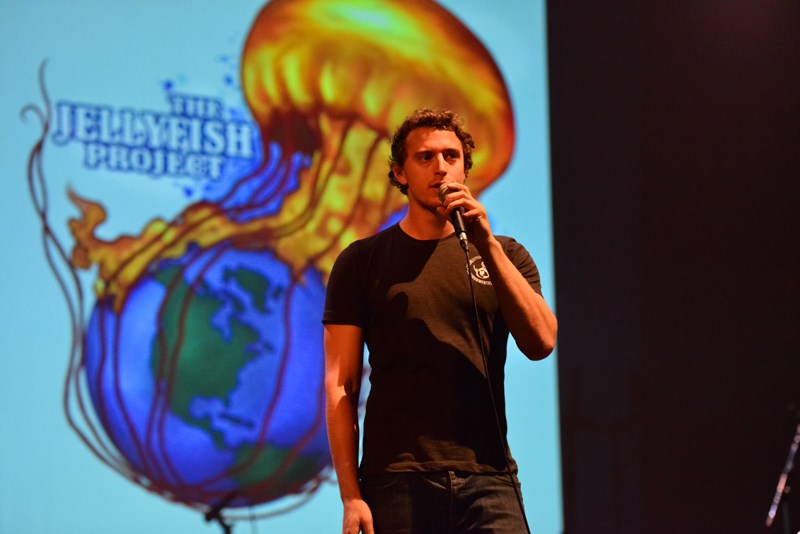Musician Daniel Kingsbury credits a profound awakening as to the effect of our species on this planet for his decision to work full time on the Jellyfish Project.
He had to quit the band to do so; he was part of the group Mindil Beach that originated on the Sunshine Coast during his Chatelech high school days and moved to Victoria to make it in the music world.
During the past few years the band wrote and performed original music, and they also got behind an environmental initiative, the Jellyfish Project, that they took to schools all over the country.
It’s a free music performance followed by a message of concern for the planet. Using a slideshow, animations and videos, the band members present the environmental crisis the world is currently facing, particularly its oceans, and they cover such topics as overfishing, plastic pollution and climate change. They also give an idea of what to do about the problems — the knowledge that empowers students to be responsible consumers.
Mindil Beach reached more than 100 schools on their tours, about 50,000 middle and high school students. It was — and still is — a successful program. But Kingsbury had an earnest desire for more.
“I spent six years with those guys in the band, but I wasn’t able to give each project [music and jellyfish] what they deserved,” he said.
He saw the project was saleable elsewhere and that musicians could be the messengers. Musicians went everywhere — some of them didn’t play in schools, but they would go on the road, play in pubs, at parties or in stadiums. How much stronger would be the environmental message if given some word of mouth credibility from the stage?
“Many artists really care about these issues,” he said. “It’s a simple yet powerful way to gain interest.”
From the stage was born a program that would reach bands around the world. During their concert they would deliver a few moments of chat to their audience, using either a script provided by the project or simply by speaking from the heart.
But will audiences really be influenced by a few words, however sincere, spoken during a concert? The project is counting on it. Those interested are directed to the merchandise display tables where they can pick up a card listing information and connections useful after the show.
The issues are huge including climate change.
“We have a window of time in the next few years,” Kingsbury said. “We can prevent it if we act.”
Loss of species is also huge — through habitat destruction or exploitative practices such as overfishing. Plastic pollution and the oceans’ increasing acidity make it difficult, for example, for shellfish to build their shells. The creature that the project is named after, the jellyfish, is an indicator species. Changes in its population represent changes in the overall ecosystem it lives in.
The Jellyfish Project is not an end in itself, but a movement-building organization — it serves to amplify the work of its partners. These include the David Suzuki Foundation, the 350 organization, Mission Blue, Canadian Youth Climate Coalition and others. Kingsbury expects exponential growth.
Kingsbury and his team are busy putting an infrastructure in place: fundraising, finding corporate sponsorship and getting the message out to musicians. He’d like to have at least 150 bands signed up by spring, forming a coalition of musicians travelling about, not preaching, but empowering their audiences.
Find out more at: www.thejellyfishproject.org.



